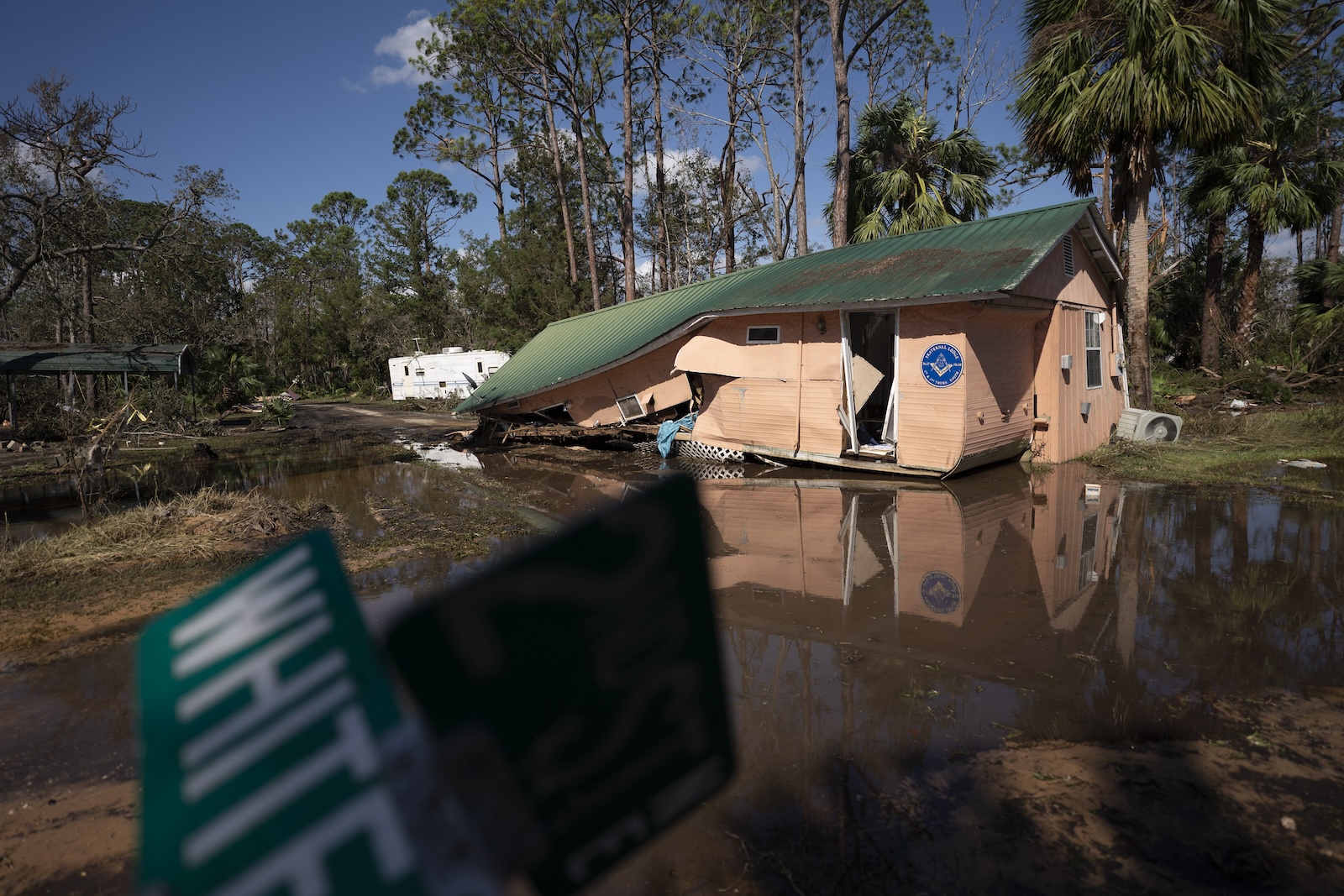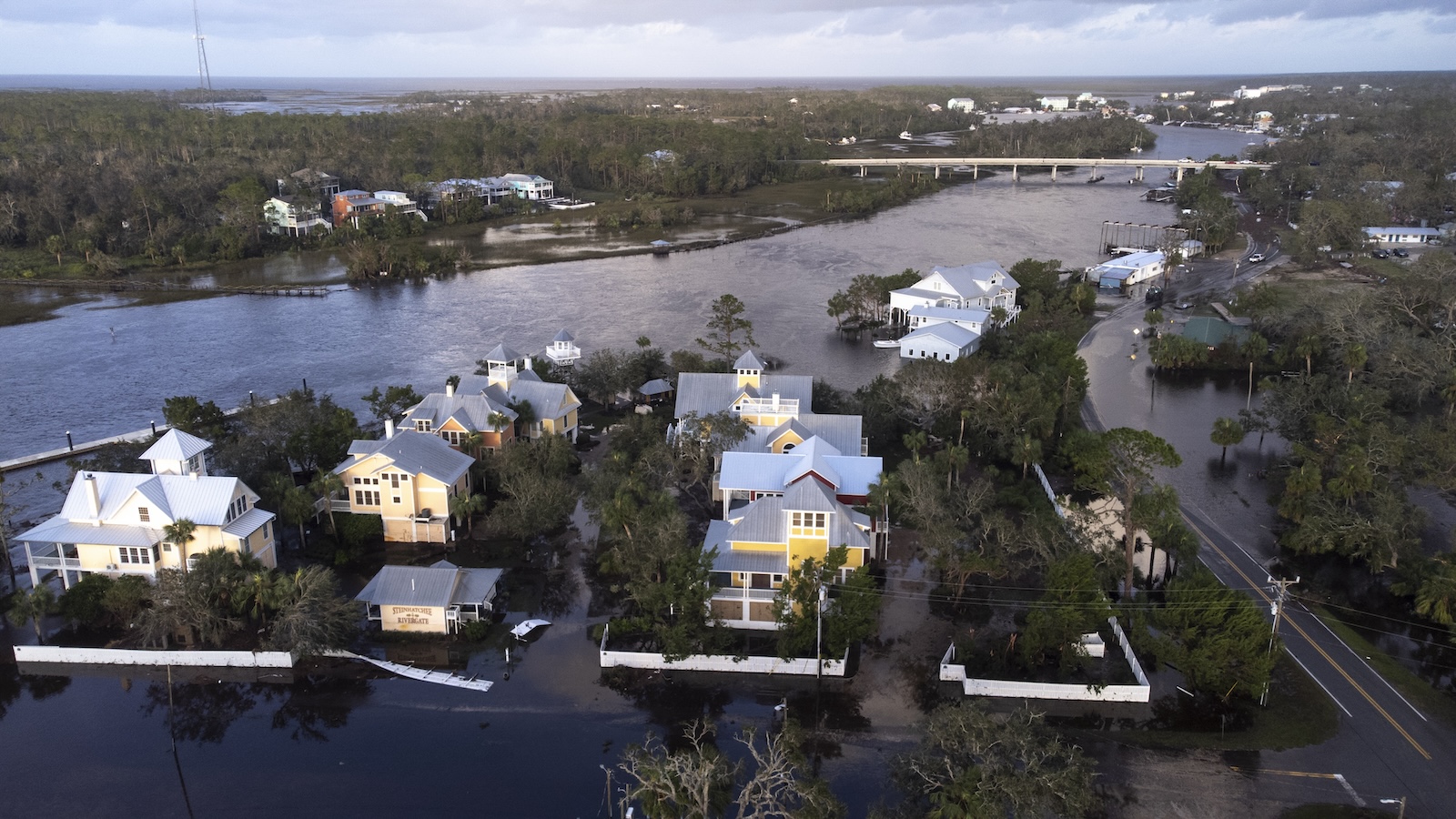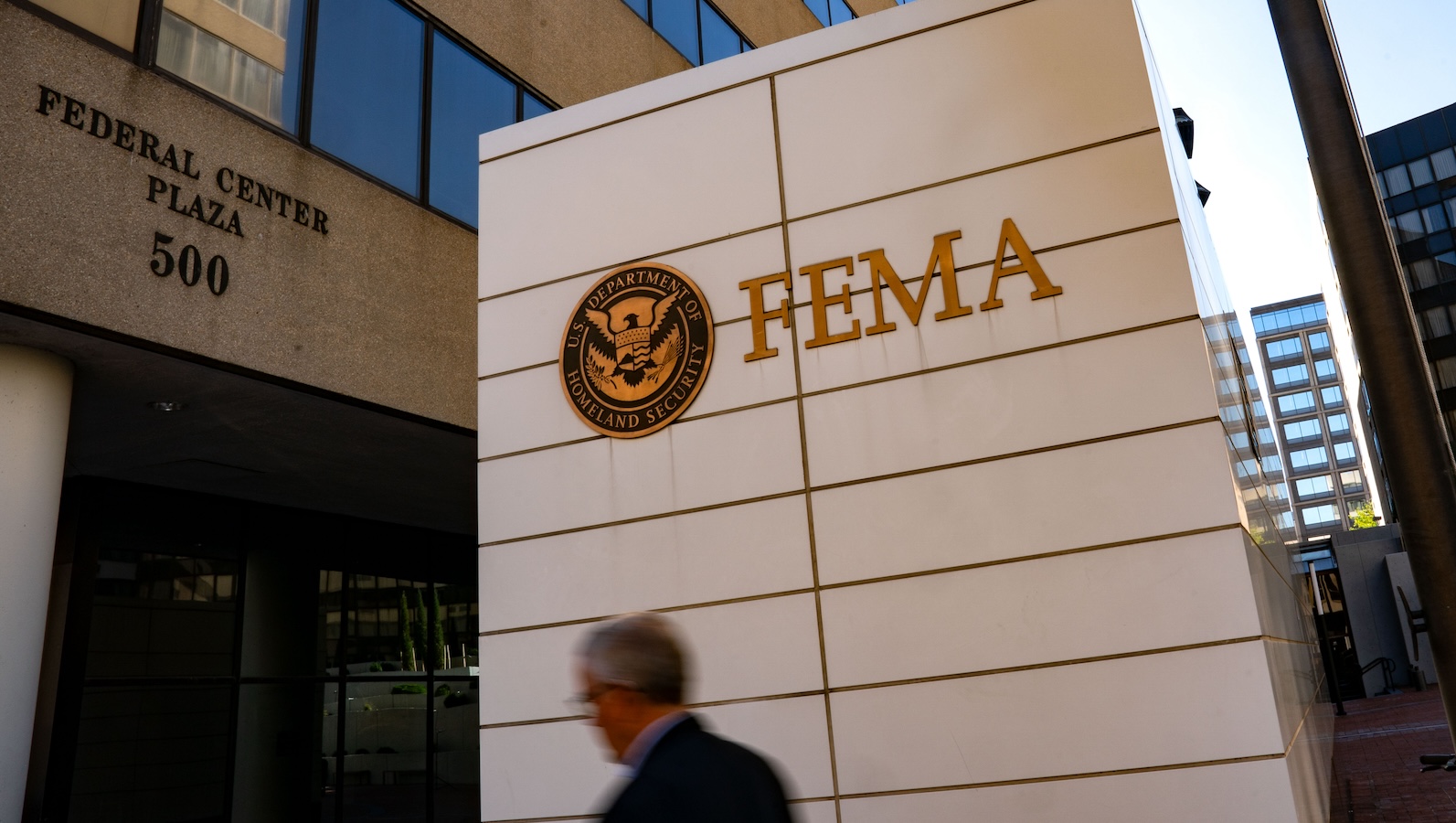The Federal Emergency Management Agency, the U.S. agency in charge of disaster relief, is facing financial and staffing challenges ahead of Hurricane Milton’s arrival in Florida — as additional disaster funding gets tied up in partisan power-jockeying in Washington.
Parts of Florida’s Gulf Coast are bracing for a Category 3 hurricane just two weeks after Hurricane Helene made landfall, devastating much of the state’s panhandle region and southern Appalachia. Nearly a dozen counties in Florida have received evacuation orders to prepare for Hurricane Milton, which stunned meteorologists with its extreme rapid intensification and is expected to make landfall Wednesday night.
The one-two punch of back-to-back hurricanes is straining federal disaster relief resources. As FEMA contends with Helene recovery as well as wildfires blazing across the West, only 8 percent of the agency’s incident management staff is available to respond to new disasters, according to its daily operations briefing for Wednesday.
FEMA faced funding problems well before Helene came along: In a report on the state of the agency’s disaster relief fund from the end of August, FEMA projected it would hit a deficit the following month. A few weeks later, in September, Congress allocated $20 billion to the emergency agency as part of a stopgap spending bill meant to avoid a government shutdown.
But in the week after Helene made landfall, Homeland Security Secretary Alejandro Mayorkas, whose cabinet department houses FEMA, said the agency would not have enough money to get through the rest of hurricane season, which lasts through the end of November. President Joe Biden has since urged lawmakers to send more money FEMA’s way — so the agency can avoid making the “unnecessary trade-off” of diverting resources away from long-term recovery efforts in order to address any immediate emergencies.

Sean Rayford / Stringer / Getty Images
Additional funding seems unlikely to arrive in time to affect recovery efforts for Hurricane Milton. Speaking to Fox News, Republican House Speaker Mike Johnson has said he will not bring the lower chamber of Congress back from its October break to consider sending more money to FEMA, and that he won’t consider the matter until after the November 5 election.
FEMA uses its disaster relief fund to do things like pay for disaster support and local debris removal, repair damaged public infrastructure, and offer financial aid to qualifying victims. The fund spent an average of $12 billion dollars annually between 1992 and 2021, with 44 percent of that money going to hurricane relief.
But in the wake of Helene, FEMA has faced a barrage of bogus rumors about disaster relief dollars being misused and redirected towards housing migrants. The agency has plainly denied the claim on its website: “This is false. No money is being diverted from disaster response needs.” FEMA does have a small grant program, representing less than 3 percent of its annual budget, that provides humanitarian support for noncitizen immigrants being released from detention facilities — but this program is entirely separate from its disaster relief fund. Still, rumors about misspent disaster funding have added fuel to the fire created by right-wing pot-stirrers like radio host Alex Jones and Representative Marjorie Taylor-Greene, who claim that FEMA is botching its response to Helene.
Although the rumors of redirected funds are baseless, they have proved to be sticky, with several Republican lawmakers spreading the misinformation. For example, when asked why she voted against the congressional stopgap measure that sent $20 billion to FEMA, Republican Senator Marsha Blackburn, who represents Tennessee, called the bill “reckless” and said she would not fund “flying illegals into our country.” In his Fox News interview, Speaker Mike Johnson conceded that, yes, FEMA’s disaster relief and migrant aid dollars come from two different pools of funding — and then continued to conflate the two efforts.

Sean Rayford / Stringer / Getty Images
As Republicans politicize disaster relief operations, Mayorkas backtracked on FEMA’s funding needs. On Wednesday, the homeland security secretary stated that FEMA “quite clearly” has everything it needs to effectively respond to Hurricane Milton. Meanwhile, FEMA itself has largely downplayed any pressures on its staff. Administrator Deanne Criswell told MSNBC that the agency is well positioned to address the needs of areas hit by Hurricane Milton — after all, disaster relief personnel are already on the ground in Florida as part of its Helene response.
As extreme weather events are made worse by climate change and impact more of the country, disaster relief needs will continue to grow. On Wednesday, dozens of Democratic members of Congress urged Johnson to reconvene the House to pass additional disaster relief funding. And some Republican lawmakers — even those who originally voted against the congressional bill that sent $20 billion to the emergency management agency — are now publicly calling for more money for FEMA. Last week, Representative Anna Paulina Luna introduced a bipartisan bill to allocate $15 billion to FEMA and the U.S. Department of Housing of Urban Development to aid Helene recovery efforts. “We need FEMA DOLLARS FREE’D UP,” wrote Luna in a tweet directed at vice president and presidential nominee Kamala Harris. Luna’s district includes most of Pinellas County, Florida, which Milton is expected to hit.
Luna previously voted against the measure to fund FEMA through the end of the calendar year.

